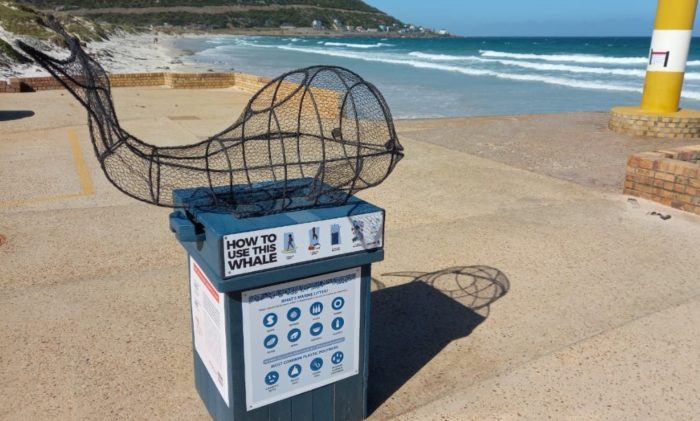Two wire-crafted whales will now live on one of Cape Town’s most popular beaches as a reminder for beachgoers to be responsible and recycle.
Two whale recycling bins were launched on Tuesday [December 8] at Fish Hoek Beach. They are designed to contain loose plastic wrappers, and locals are encouraged to pick up as much plastic as they can find while enjoying the beach.

The whales come complete with interactive signage educating people about the harmful impact of plastic on our oceans, in order to raise awareness and keep our beaches clean and plastic-free.
This movement was inspired by Kakapo the whale, another wire whale that lives on Noordhoek beach. The whale bin project is an extension of Project Noordhoeked, a community funded project that employs two guys who clean the roadsides, common and beach.

According to Good Things Guy, the bins will be monitored by the City of Cape Town’s Shark Spotter programme.
Depending on how successful it is, this project may be rolled out to other beaches in the future.

The whales were installed by world surf ski paddling champion Dawid Mocke of Mocke Paddling and the Fish Hoek Beach Shark Spotters crew.

Besides being an eyesore, plastic pollution directly impacts the environment and marine animals, as thousands of seabirds, seals, turtles and other marine mammals are killed every year after ingesting plastic or getting entangled in it.
Picture: Facebook / Fish Hoek Valley Ratepayers & Residents Association

